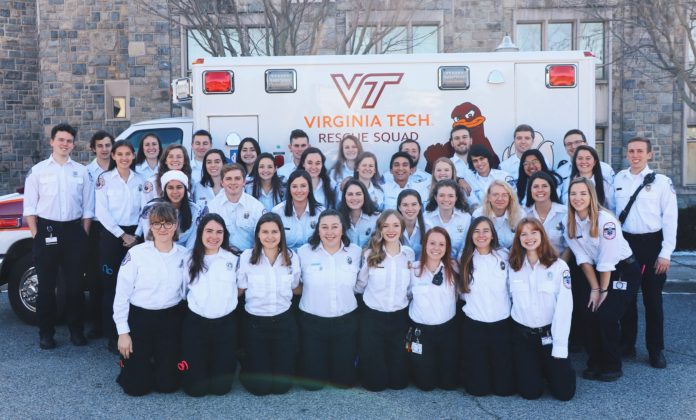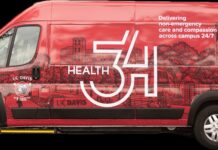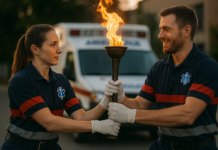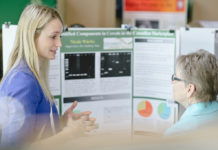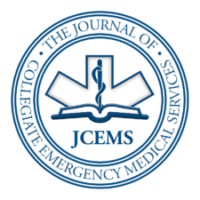The Virginia Tech Rescue Squad (VTRS) is an Advanced Life Support (ALS) ground ambulance service that serves the Blacksburg campus and properties of Virginia Tech. VTRS has won the National Collegiate EMS Foundation (NCEMSF) Skills Classic competition at either the BLS or ALS level for each of the last five years. Their impressive performance reflects the squad’s history, leadership, and intense training regimen.
Formed in 1969, VTRS is composed of volunteer undergraduate students and serves all students, staff, faculty, and visitors absolutely free of charge. The VTRS has 43 active members ranging from EMS students to paramedics that fulfill the administrative and operational needs of the rescue squad 365 days every year. The VTRS maintains 3 ALS ambulances, 3 response vehicles, 1 all-terrain vehicle for rural response, a mass casualty trailer, a special operations trailer, a mobile repeater, and equipment for a Cycling Emergency Response Team. The VTRS runs approximately 1,300 emergency calls per year and leads EMS operations for all major athletic and entertainment events.
Congratulations on your success at the NCEMSF Skills Classic. How did your squad address challenges and prepare?
A challenge faced by every team is making sure that the roles and responsibilities are adequately tailored to the competing team. We hold multiple discussions and scenarios for each crew weeks prior to the competition in which our BLS and ALS teams evaluate each other and offer critical feedback. Our teams are constructed randomly most years, although we try to have a member on the team with prior experience at the competition.
Your work at the Skills Classic reflects the fact that your squad has an outstanding overall training program? What makes your training program so successful?
The VTRS on-duty crews train on every single night shift for approximately two hours. These two hours consist of a written lecture style training typically addressing medical conditions, procedures and interventions, operations, team-building exercises, and more as organized by our training officer. After our crews complete this, the crews hold a simulation around campus for a preceptee to test their skills and knowledge. Each year, we fund members to attend multiple conferences, hold annual multi-agency Mass Casualty Simulations, and have mandatory training sessions for our active members. The VTRS has a fantastic culture regarding training and pursuing best practices.
What advice do you have for other teams who are thinking about competing?
It is extremely valuable to participate in the skills competitions at NCEMSF, regardless of your agency’s individual capabilities or experience. The competition is a beneficial way to identify the improvements needed within your agency’s training regimen and to strengthen its deficiencies. You may also surprise yourself with your placement.
As an ALS-level agency, VTRS is unique for collegiate EMS organizations. Are there any particular advantages or challenges of being a collegiate EMS squad at the ALS level?
The VTRS sees great benefit in being certified at the ALS level as it allows us to be self-dependent for all incidents. It increases our response capabilities, builds advanced clinical skills, fosters critical thinking and problem solving, and allows our members to continue to strive for more. We pay 100% tuition for our members to obtain BLS and ALS certifications as it is an investment paid back in service. The largest challenge faced by the VTRS is a fluctuating number of ALS to BLS providers from year to year. We are proud to be able to offer the highest level of care to our community.


